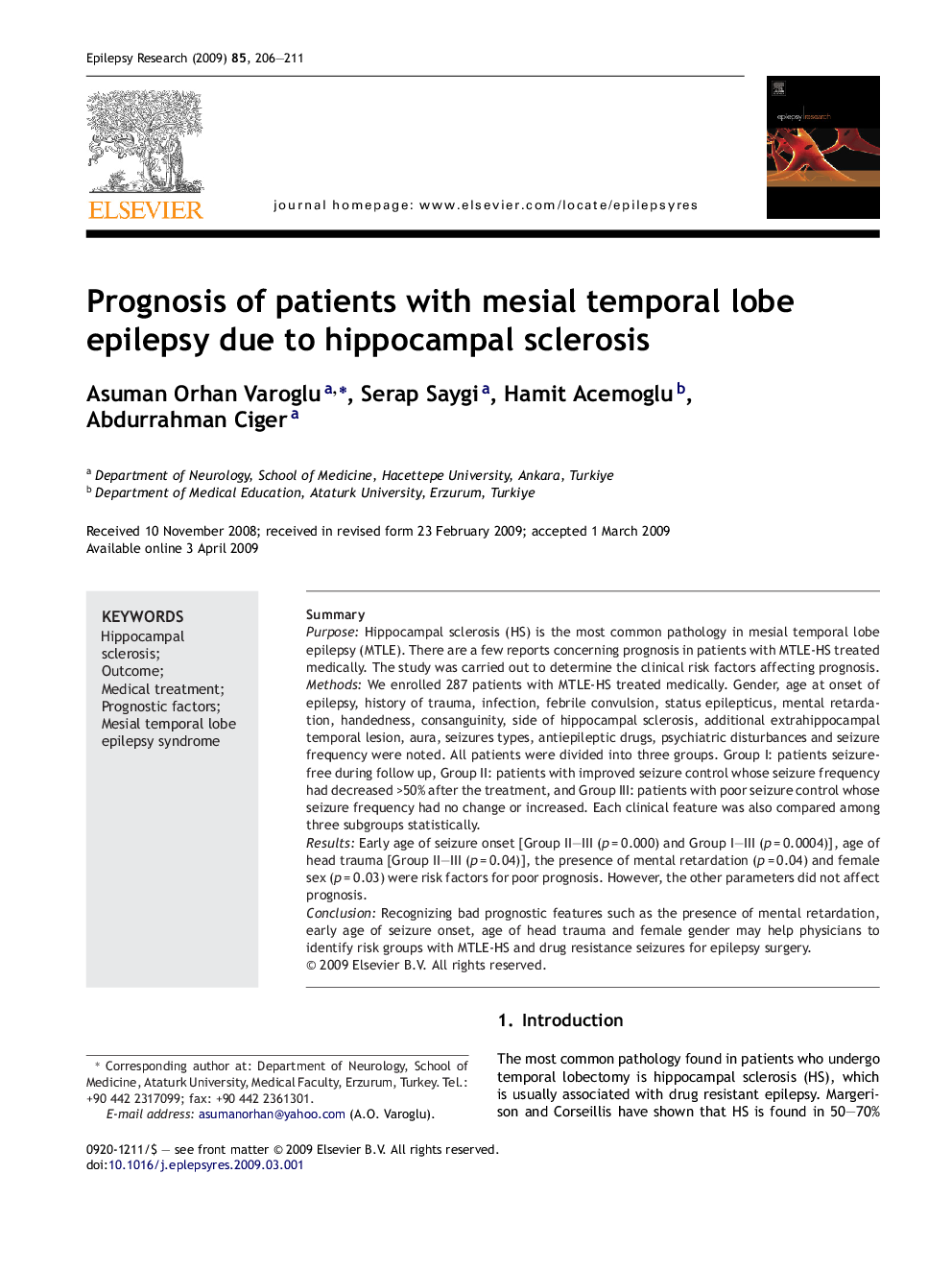| کد مقاله | کد نشریه | سال انتشار | مقاله انگلیسی | نسخه تمام متن |
|---|---|---|---|---|
| 3052895 | 1579939 | 2009 | 6 صفحه PDF | دانلود رایگان |

SummaryPurposeHippocampal sclerosis (HS) is the most common pathology in mesial temporal lobe epilepsy (MTLE). There are a few reports concerning prognosis in patients with MTLE-HS treated medically. The study was carried out to determine the clinical risk factors affecting prognosis.MethodsWe enrolled 287 patients with MTLE-HS treated medically. Gender, age at onset of epilepsy, history of trauma, infection, febrile convulsion, status epilepticus, mental retardation, handedness, consanguinity, side of hippocampal sclerosis, additional extrahippocampal temporal lesion, aura, seizures types, antiepileptic drugs, psychiatric disturbances and seizure frequency were noted. All patients were divided into three groups. Group I: patients seizure-free during follow up, Group II: patients with improved seizure control whose seizure frequency had decreased >50% after the treatment, and Group III: patients with poor seizure control whose seizure frequency had no change or increased. Each clinical feature was also compared among three subgroups statistically.ResultsEarly age of seizure onset [Group II–III (p = 0.000) and Group I–III (p = 0.0004)], age of head trauma [Group II–III (p = 0.04)], the presence of mental retardation (p = 0.04) and female sex (p = 0.03) were risk factors for poor prognosis. However, the other parameters did not affect prognosis.ConclusionRecognizing bad prognostic features such as the presence of mental retardation, early age of seizure onset, age of head trauma and female gender may help physicians to identify risk groups with MTLE-HS and drug resistance seizures for epilepsy surgery.
Journal: Epilepsy Research - Volume 85, Issues 2–3, August 2009, Pages 206–211